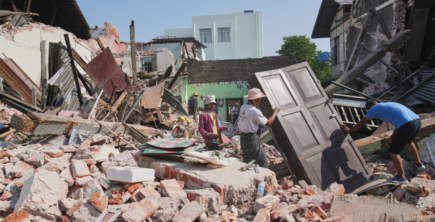
Healthy Individuals & Communities
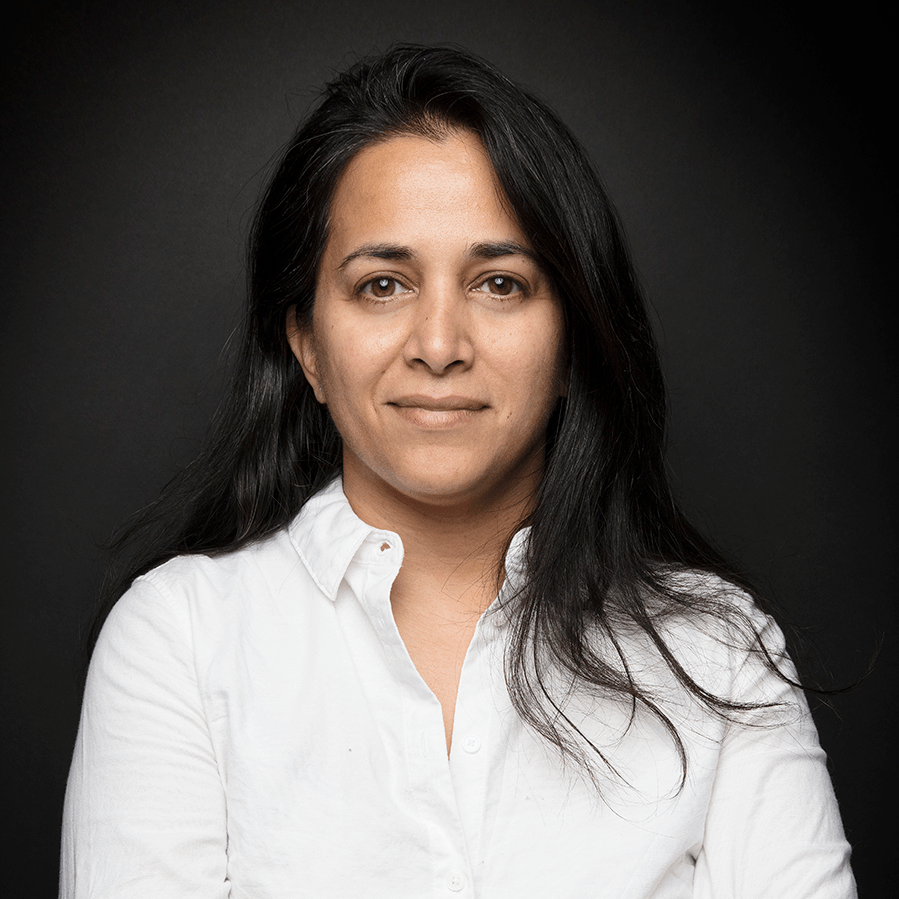
January 21st, 2017 has been called the single largest day of protest in history. Millions of women gathered all over the world to stand up for women’s rights and human rights at large. Women’s March Global is the global representation of all of the sister marches around the world that came together that day. Since then, they have continued to work as a grassroots network of community organizers focused on local issues and also continue work on a global level to tell a unified story of what’s happening around the world and to form campaigns around critical local and global issues. Women’s March Global calls Tides home as a social venture, and so we were honored to sit down with their Interim Executive Director Uma Mishra-Newbery.
Ilyse Iris Magy, Tides: What opportunities and challenges do Women’s March Global chapters around the world face that are different from their United States counterparts?
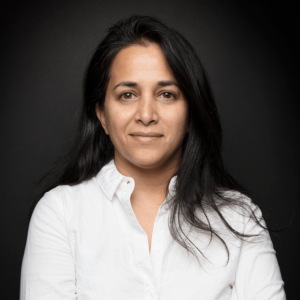 Uma Mishra-Newbery, Women’s March Global: The experiences of women worldwide are very similar. The violence that a woman experiences in Jamaica is very similar to the violence that a woman experiences in South Africa. And the systemic misogyny and patriarchy that leads to the kinds of ways of thinking and built-in narratives which result in the violence against women are also very similar.
Uma Mishra-Newbery, Women’s March Global: The experiences of women worldwide are very similar. The violence that a woman experiences in Jamaica is very similar to the violence that a woman experiences in South Africa. And the systemic misogyny and patriarchy that leads to the kinds of ways of thinking and built-in narratives which result in the violence against women are also very similar.
So the challenge for a lot of our organizers is how to link up those experiences so we can globally see them as shared experiences. Because the whole essence of this movement came from the fact that women united on this one particular day because they knew, and we all know, that our stories are shared stories, our experiences are shared experiences. These are not isolated incidents, you know? How do we do this in a more impactful way so that policymakers and lawmakers are actually hearing that it’s not just one woman sharing her story of violence but that it’s millions of women, women that have the same exact story across borders, time zones, and languages?
IIM: You started at WMG as director of global community. What are some of the opportunities and challenges of building an international coalition and how has Women’s March Global overcome it?
UMN: So much of this work of building community is building trust and showing up to have really difficult conversations. I’m a very big fan of uncomfortable discussions. If we are able to push each other and understand that we don’t have to agree on things, and it’s not about uniformity – it’s really about saying “I understand,” and “I’m hearing the difficulties that you may face in wherever you are,” and “I’m committed to showing up right alongside you so that we can make this change together.” The issues we are working on are diverse and complex and sometimes we have to overcome the need to agree and understand that the core of this work is this shared belief that human rights belong to everyone. These challenges and discussions are everyday aspects of our work because globally issues are morphing and changing in ways that we are always having to adapt to. It’s a constant process.
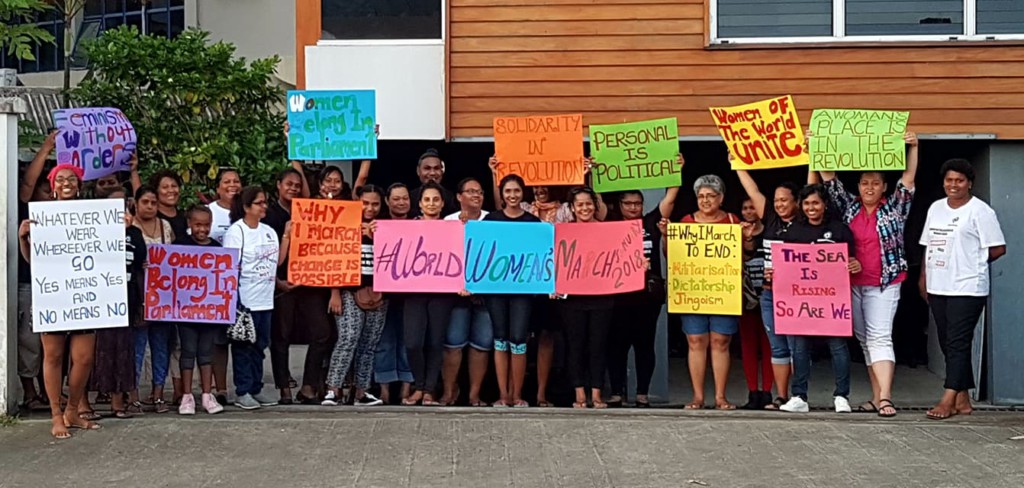
Women’s March Global action in Fiji
IIM: What would you say to someone who expects movement building to be free of conflict?
UMN: I would ask if their daily life is free of conflict. It’s not. Movement building is never free of conflict because we live in such conflicting times. When we are asking people to unite around a specific issue, those issues are so embedded in our own traumas that we bring that to the table. When I’m talking about violence against women I bring my own trauma of the violence that I’ve experienced as a woman to the table. These discussions are not without pain, they are not without frustration, they are not without real, deep-seated narratives that we have to constantly do the work of breaking free from. All of that makes this aspect of movement building very difficult. Add into that egos, add into that voices, add into that all of these different components: movement building is never meant to be easy. The aspect that we need to remember is, what are we here for? We are here for true unification and true freedom for all people.
IIM: What advice would you give to someone who wants to be part of building a movement in this current environment?
UMN: The first thing is don’t doubt yourself. I think as women specifically we often doubt ourselves because we have been trained to question our capacity and to doubt our voice and the impact it could have. It’s a constant retraining, to not ask myself when I walk into a room: am I meant to be in this room and what is my value here? Our experiences are what gives our voice value in so many ways. Yet we have been told through history that those experiences aren’t valid.
The second thing that I would say is to do a better job of really listening. Understand that when we’re talking about intersectional movements there are people that have experienced extreme oppression due to marginalization and so it is their voices that we need to be literally making the space for and bringing to the forefront. That requires us as good listeners to sometimes not speak, to sometimes really just sit and listen to that person’s stories and commit to working right alongside them to create that change. I think that is very difficult for some people. We all have this feeling that we need to be heard, but part of being heard within a movement is working to create a space where the most marginalised and oppressed voices are heard, believed, listened to, and followed.
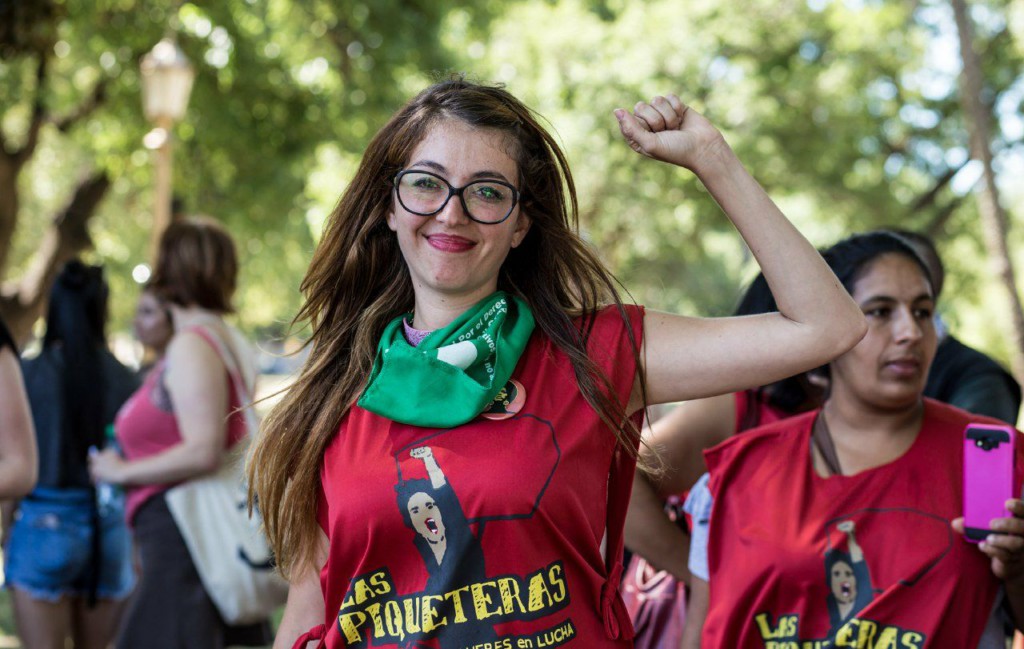
Womens March Global activist in Argentina
IIM: You’ve held many roles in your time and occupy many identities. How do these roles inform your work and your approach to women’s leadership?
UMN: I’ve been working for 20 years now and it’s been very, very diverse work experiences. I started working as a soldier in the U.S. Army and was there for nearly 6 years, then in the hospital after that, then as an adjunct professor, and then as a teacher, and it goes on and on. Now here at Women’s March Global, I think that the experience that informs my work is that I am very cognizant of the girl that I was at five, and the girl that I was at eleven, and the very young girl that I was at sixteen and how those experiences of my upbringing informed my first job as a soldier.
If you live in a stable democracy and if you can use your voice without fear of repercussion, you have an obligation to do so.
In regards to this aspect of women’s empowerment, what would it look like—and I ask myself this question almost on a daily basis—what would it look like if every single girl and woman was able to actually live their life as they were meant to be? Not burdened by these really toxic narratives, not burdened by this really toxic patriarchy. What would that look like? My god, it would be amazing, you know? I know from my own experience there is so much resentment that so many women carry, that if only I was able to realize the strength of my voice earlier on in my own career I could have done this much sooner.
That is really what pushes me almost on a daily basis. I get asked the question: don’t you get tired? No, because I know that (a) there are so many girls in that same position, and so many women that are still struggling to find their voice and (b) I know my own journey in this, and that’s something that I cling to on a daily basis.
IIM: Your favorite motto is a quotation from Alice Walker: “Activism is the rent I pay for living on the planet.” Can you say more about what this quotation means to you and how it shows up in your work?
UMN: We take our freedom very much for granted, The message we learn a lot in the military is that soldiers are the ones that fight for your freedom. I’m a veteran turned pacifist, and now my belief is that women human rights defenders fight for our freedom. They fight for our ability to use our voice in so many different ways.
The thing that drives my work is: do I want my daughter growing up in a world where I haven’t done anything to make it better for her? Do I want girls around the world growing up in a world where they don’t have that opportunity? I know how difficult it was for me, and I know how difficult it was for so many of the women that I know. Why should it continue to be that way? It’s unacceptable. And yet in so many ways it does continue to be that way. Those narratives are still are so incredibly embedded.
IIM: What can Women’s March Global do with Tides that they wouldn’t be able to otherwise?
UMN: What we’ve been able to do with Tides is be a stable organization. We built this movement from this day of massive global unity and what Tides has been able to give us is a home so that we could really continue the work while also from a strategic standpoint develop who we are as an organization internally. So that’s been a really great relationship we’ve been able to have.
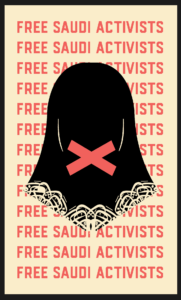 IIM: What campaigns are WMG working on now and how can readers get involved?
IIM: What campaigns are WMG working on now and how can readers get involved?
UMN: We are actively campaigning in regards to the women human rights defenders in Saudi Arabia that are still in prison. Our petition addressed to the United Nations to put pressure on Saudi Arabia to free unconditionally the human rights defenders has close to 250,000 signatures. I encourage everyone to sign that and share it, and to keep on sharing.
The second major campaign is “End Violence Against Women.” We have four remaining months of webinars in a series all focused on a different theme. This month we are partnered with Equality Now, talking about rape consent laws around the world. Make sure that you are aware of what rape consent laws look like in your area and sign up for our webinar series and mini course.
IIM: How can women get involved in WMG if activism isn’t their life’s work but they are inspired to do something today to make a difference?
UMN: If you live in a stable democracy and if you can use your voice without fear of repercussion, you have an obligation to do so. There are so many women human rights defenders that continue to use their voice even when they face silencing by their governments and other people. So join one of our campaigns, join as a member of the community so that you can stay informed of the work that’s being done and the narratives that we are really trying to break free from. Join a chapter that’s within your area so that you can really start listening in to the work on a very local level in regards to women’s rights and women’s empowerment.
Don’t wait to take action. Some people say, I’ll wait until this situation happens and then I’ll react. There’s so many things that are at stake that are so incredibly critical. There are women currently sitting in prison in Saudi Arabia who have been there for over 300 days now. It’s really key that we remember that as we enjoy our freedom, it does comes off the back of these women that have used their voice and are oppressed because of it. You have a gift and we need you to use it.
Follow Women’s March Global on social media to keep up with all they are doing!
Facebook | Twitter | Instagram | LinkedIn | Medium

Healthy Individuals & Communities
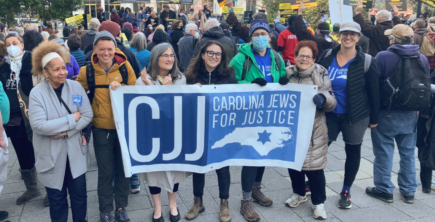
Our Community
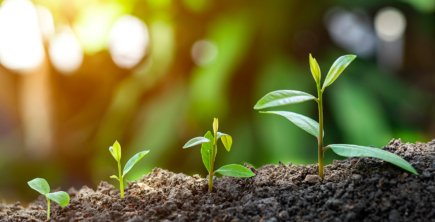
Philanthropy

Read the stories and hear the voices of social change leaders fighting for justice.